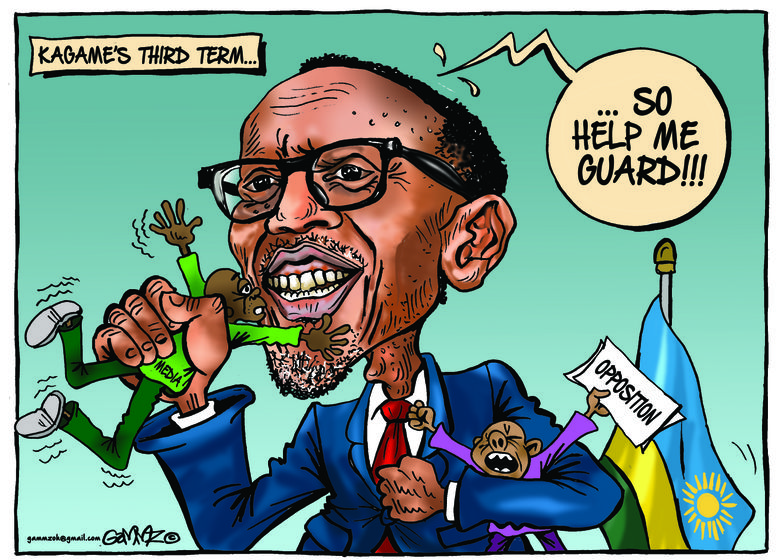 Drawing cartoons or producing writing that “humiliates” a government official is now a criminal offense in Rwanda, a new law says.
Drawing cartoons or producing writing that “humiliates” a government official is now a criminal offense in Rwanda, a new law says.
Journalists say the law that took effect on Thursday will greatly affect work that is meant to hold public officials, including Cabinet members and security officers, to account.
It was not immediately clear if the law affects people who post such writings on social media.
A cartoonist who breaks the law faces up to two years in prison and a fine of up to $1,145. If the cartoon targets a Member of Parliament or top-ranking official, the penalty doubles.
“Any person who, verbally, by gestures or threats, in writings or cartoons, humiliates a member of parliament when exercising his/her mandate, a member of the Cabinet, security officers or any other person in charge of a public service in the performance or in connection with the performance of his/her duties, commits an offence,” the law says.
One Justice Ministry official unhappy with the new law asked who will determine whether someone has been humiliated. The official spoke on condition of anonymity because they were not authorized to speak on the ministry’s behalf.
The Rwanda Journalists Association’s executive secretary, Gonza Muganwa, said the group would seek legal interpretations and advise members accordingly.
“In the trade of journalism, cartoons are by nature humorous and therefore easy for leaders to perceive them negatively or as humiliating even when it’s not,” Muganwa told The Associated Press.
Defaming Rwanda’s head of state already was illegal, bringing five to seven years in prison and a $8,140 fine.
Rwanda also has decriminalized defamation in general, the result of years of advocacy by the media and dialogue with the government. Human rights groups have long criticized the criminalization of media offenses as aimed at suppressing independent media.
While the journalists association considers defamation a major ethical breach, Muganwa said, complaints should be handled by the media self-regulatory body or by civil means.
AP











